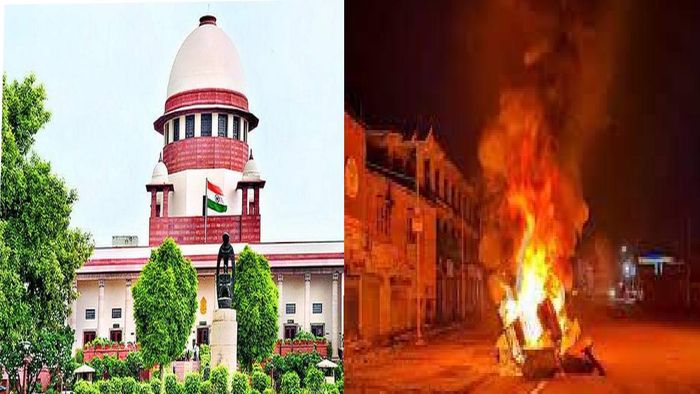Manipur violence: SC directs centre, state to ensure distribution of basic supplies
The court, consisting of Chief Justice of India DY Chandrachud and Justice JB Pardiwala, also called for the removal of blockades that have prevented vital provisions from reaching the people.

- Sep 01, 2023,
- Updated Sep 01, 2023, 8:31 PM IST
In response to the ongoing violence and blockades in Manipur, the Supreme Court on September 1 has directed both the Government of India and the State Government of Manipur to ensure the distribution of essential supplies, including food and medicine, to those affected. The court, consisting of Chief Justice of India DY Chandrachud and Justice JB Pardiwala, also called for the removal of blockades that have prevented vital provisions from reaching the people. To tackle this issue, the court suggested exploring various options, including air-dropping essential supplies.
These directives were issued following the submission of Senior Advocate Meenakshi Arora, representing the judges' committee assigned by the Supreme Court to address humanitarian aspects of the situation. Arora highlighted two critical issues: blockades in the Moreh region of Manipur hindering access to basic necessities and an outbreak of measles and chickenpox in some relief camps.
Chief Justice Chandrachud initially questioned why the committee had approached the court instead of directly contacting the government. He then instructed Solicitor General Tushar Mehta to formally notify the committee's appointed nodal officers so that they could communicate directly with the government.
However, Senior Advocate Jaideep Gupta, representing the respondents, pointed out that the committee could not address the blockade issue. Solicitor General Mehta concurred, emphasizing that the committee lacked the authority to remove blockades, which often arise due to local circumstances.
Senior Advocate Indira Jaising stressed the gravity of the situation in the Moreh area, where food shortages were critical. She suggested that the committee could provide food supplies if the armed forces could not remove the blockades.
In response, Chief Justice Chandrachud acknowledged the complexity and sensitivity of the blockade issue, often created by local individuals or groups. He emphasized that the government should assess the ground realities and take appropriate measures to address the situation, clarifying that resolving blockades was more than just directing the armed forces.
The court then directed both the Government of India and the Government of Manipur to ensure the distribution of food, medicine, and other essentials, considering the humanitarian aspect of the matter. They urged the government to explore all options, including air-dropping necessities if necessary. The court also scheduled the next hearing for September 6, 2023, during which the committee's findings would be discussed.
Furthermore, various counsels raised other issues, such as the demolition of structures and the destruction of places of worship, including churches. The court directed these concerns to be addressed, with instructions sent to the committee and state government to take appropriate action. Additionally, the court considered compensation for victims, proposing that the Manipur Compensation Scheme align with the NALSA scheme, making it applicable nationwide. The court also emphasized the need to handle unclaimed bodies in morgues in a dignified manner to prevent the spread of diseases.